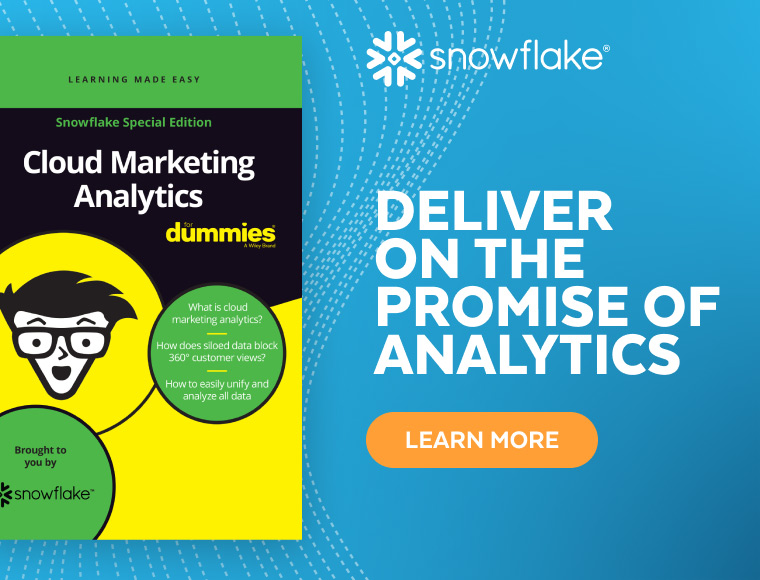Deploying Machine Learning in Marketing for Optimal Results
Machine learning uses advanced algorithms to help marketers uncover valuable, data-driven insights about their customers, campaigns, and processes. These insights enable teams to plan and execute their marketing strategy more effectively. In this article, we'll explore how marketing teams can harness cutting-edge ML tools to enhance the efficacy of their marketing programs. We'll close with a list of essential elements that form the foundation of successfully using machine learning in marketing.
Using Machine Learning to Optimize Marketing Strategy
Machine learning offers an unparalleled opportunity for businesses to transform their approach to customer engagement and campaign results. Sophisticated algorithms, data analysis, and predictive modeling work together to illuminate customer behavior, preferences, and trends. Armed with this information, marketers can fine-tune their targeting efforts, personalize messaging, and maximize return on investment. Let's look at how ML-driven marketing strategies facilitate teams to maximize revenue.
Enhanced personalization
Personalized experiences increase engagement because they are highly tailored to the customer's interests and needs. Machine learning tools enable marketers to create targeted campaigns at the individual customer level. Machine learning algorithms can analyze customer data in a granular way, producing information on the behavior and preferences of individual customers, and then combine that information with macro-level data such as weather patterns and consumer trends. By bringing all of this data together, marketers can serve up highly personalized product recommendations, tailored content, and targeted advertising, often in near real-time. Providing the right marketing message to the right customer at the right time increases conversions.
Accurate prediction of customer behavior
Machine learning models can predict customer behavior with a high degree of accuracy, helping marketers optimize their strategies to reach the desired outcomes. Algorithms can be trained to identify signs that a customer is at high risk for churning, enabling marketers to intervene with an outreach designed to boost engagement. ML-enabled tools can also be used to predict the likelihood to purchase or the probability that a lead will convert.
Process automation
By automating manual processes, marketers can focus their attention on higher-level strategy and implementation. Customer segmentation is a prime example of machine learning's growing role in marketing automation. ML-powered marketing tools can analyze large, diverse data sets quickly, automatically segmenting customers into groups based on various attributes, such as online behavior, demographics, purchase histories, and other characteristics, with precision and accuracy. Another example is ML-driven email marketing that can analyze and respond to customer behavior automatically by sending personalized marketing emails.
NLP-powered conversational chatbots
Natural language processing (NLP) is a subset of machine learning that enables machines to interpret and comprehend human language. Using NLP, marketers can quickly analyze massive amounts of text data, including customer reviews, social media comments, and chatbot interactions. With this information, marketers can gain important insights into how customers feel about the brand, its products and services, and customer support. Marketers can also use NLP-enabled chatbots to expand their reach, helping them engage with customers in real time. For example, conversational chatbots can provide product information and recommendations based on their interactions with users.
Post-cookie ad targeting
Embedding machine learning into marketing activities such as ad targeting ensures that marketing spend is used effectively. As consumers become more concerned about privacy, machine learning algorithms play an increasingly important role in delivering personalized marketing messages without using tracking cookies. With contextual signals, behavioral analysis, and predictive modeling, machine learning can pair the right message with the right customer, sans cookies.
Essential Ingredients for Using Machine Learning in Marketing
ML-supported marketing tools rely on a highly capable cloud infrastructure that can handle the requirements of this resource-intensive technology. To maximize the impact of machine learning in marketing programs, several core capabilities are required to support it. Let's examine the key ingredients necessary to unlock the potential of machine learning in marketing.
Support for all types of data (unstructured, structured, semi-structured)
Actionable data comes in unstructured, semi-structured, and structured formats. All three types of data are essential for implementing machine learning to its greatest effect. Accessing customer data from internal and external sources, across channels, and in real time helps ML marketing tools produce the most comprehensive, relevant results possible.
Options for integrating third-party data
Supplementing in-house marketing data with data fromthird-party sources provides ML marketing tools with additional context, enhancing the value of ML-powered segmentation models, recommendation engines, and other marketing tools. Marketers should be able to seamlessly integrate third-party data into the data platform running ML workloads.
Cloud data storage infrastructure
ML marketing tools rely heavily on data. For this reason, access toflexible data storage is essential. A modern cloud data platform serves as a single source of truth for all relevant marketing data. With on-demand, near-limitless storage, marketers can keep all of their relevant data in one place, eliminating the data silos that hamper the effectiveness of ML-enabled marketing activities.
Scalable compute resources
Machine learning tasks are computationally intensive, especially when processing the massive data sets that make them so successful. Teams must have the compute capabilities required to keep ML marketing tools running smoothly without impacting the performance of other business systems.
Robust data governance
Safeguarding sensitive data is an essential part of ML-driven marketing. Modern cloud data platforms such as Snowflake have robust data governance standards baked in. With governance capabilities, such as comprehensive access controls and encryption for data in transit and at rest, organizations can reduce their risk and maintain compliance with relevant data protection regulations.
Experience the Power of Machine Learning in Marketing with Snowflake
The Snowflake Data Cloud is built formachine learning. With on-demand scalability for compute and storage, marketing teams have access to the resources they need to implement all of their ML-supported customer engagement strategies. Snowflake serves as a single platform to unify teams and tools around data, effortlessly making model results available in the platform for teams and applications to easily consume and act on ML-driven insights.
